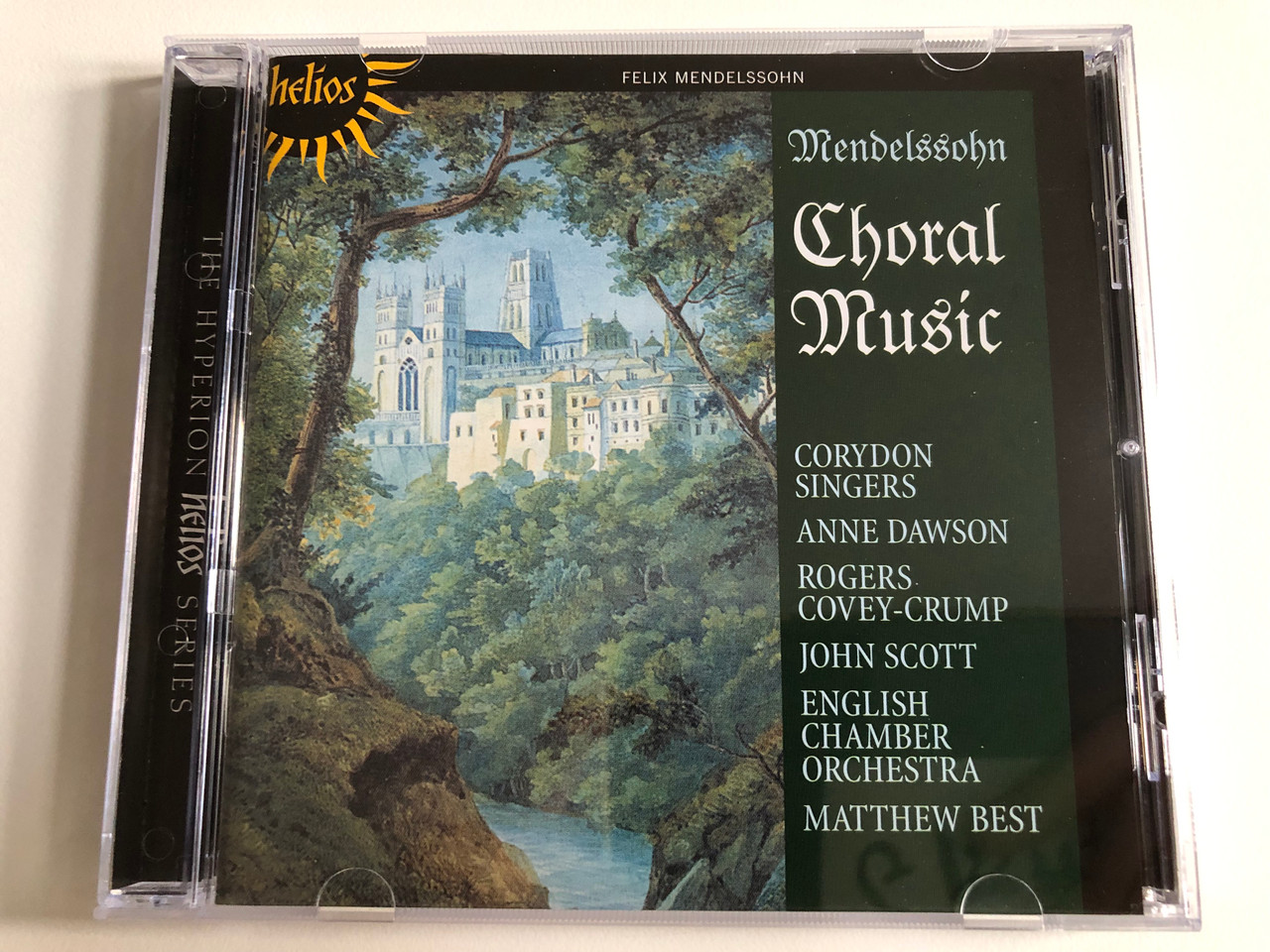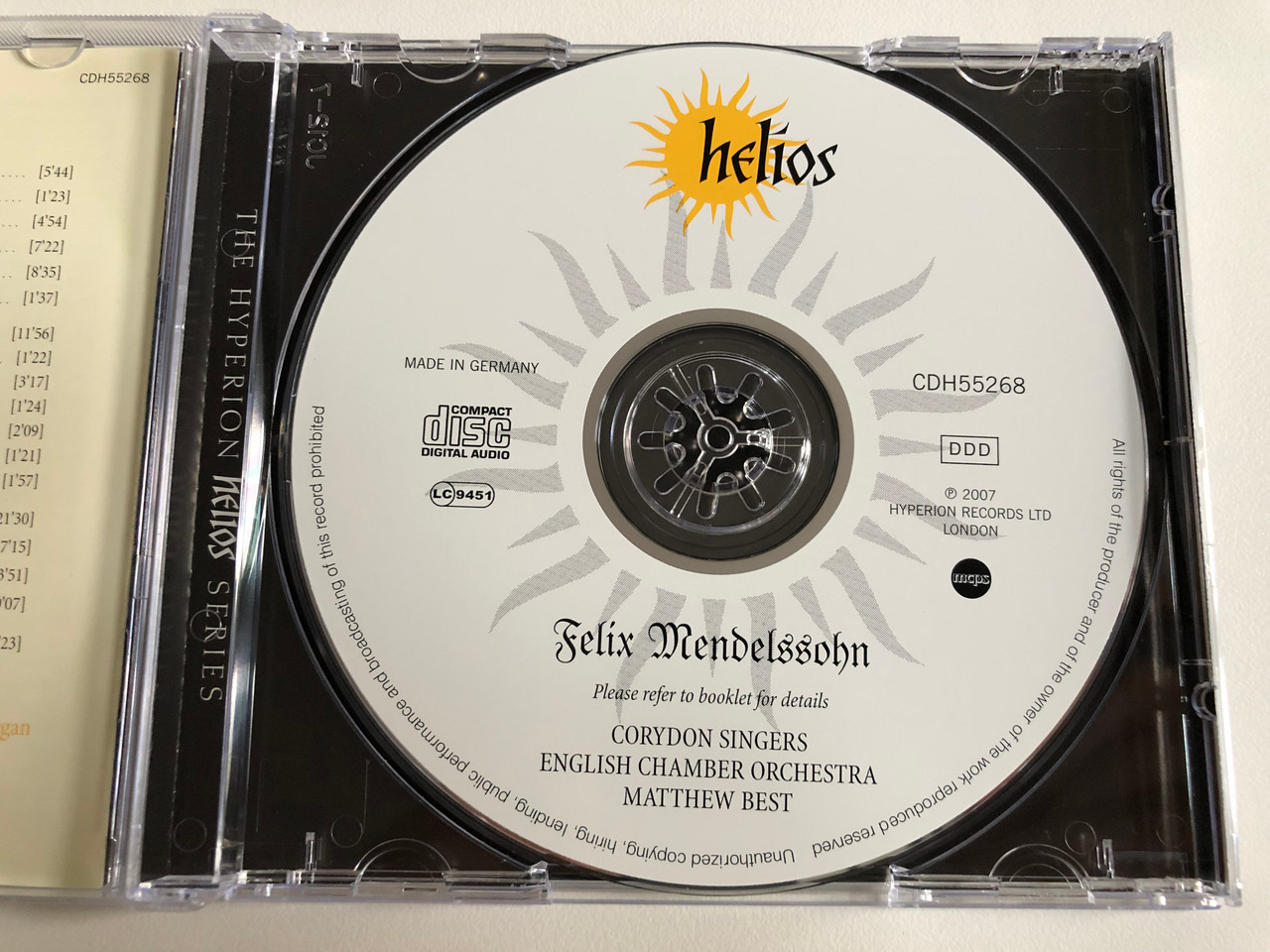Description
Mendelssohn - Choral Music / Corydon Singers, Anne Dawson, Rogers Covey-Crump, John Scott, English Chamber Orchestra, Matthew Best / Helios Audio CD 2007 / CDH55268
UPC 034571152684
Jakob Ludwig Felix Mendelssohn Bartholdy (3 February 1809 – 4 November 1847), born and widely known as Felix Mendelssohn, was a German composer, pianist, organist and conductor of the early Romantic period. Mendelssohn's compositions include symphonies, concertos, piano music, organ music and chamber music. His best-known works include the overture and incidental music for A Midsummer Night's Dream, the Italian Symphony, the Scottish Symphony, the oratorio St. Paul, the oratorio Elijah, the overture The Hebrides, the mature Violin Concerto and the String Octet. The melody for the Christmas carol "Hark! The Herald Angels Sing" is also his. Mendelssohn's Songs Without Words are his most famous solo piano compositions.
A grandson of the philosopher Moses Mendelssohn, Felix Mendelssohn was born into a prominent Jewish family. He was brought up without religion until the age of seven, when he was baptised as a Reformed Christian. Felix was recognised early as a musical prodigy, but his parents were cautious and did not seek to capitalise on his talent. His sister Fanny Mendelssohn received a similar musical education and was a talented composer and pianist in her own right; some of her early songs were published under her brother's name and her Easter Sonata was for a time mistakenly attributed to him after being lost and rediscovered in the 1970s.
Mendelssohn enjoyed early success in Germany, and revived interest in the music of Johann Sebastian Bach, notably with his performance of the St Matthew Passion in 1829. He became well received in his travels throughout Europe as a composer, conductor and soloist; his ten visits to Britain – during which many of his major works were premiered – form an important part of his adult career. His essentially conservative musical tastes set him apart from more adventurous musical contemporaries such as Franz Liszt, Richard Wagner, Charles-Valentin Alkan and Hector Berlioz. The Leipzig Conservatory, which he founded, became a bastion of this anti-radical outlook. After a long period of relative denigration due to changing musical tastes and antisemitism in the late 19th and early 20th centuries, his creative originality has been re-evaluated. He is now among the most popular composers of the Romantic era.
Tracklist:
1. Verleih’ uns Frieden [5'44]
2. Kyrie eleison [1'23]
3. Ehre sei Gott in der Höhe [4'54]
4. Ave Maria Op 23No2 [7'22]
5. Mitten wir im Leben sind Op 23 No3 [8'35]
6. Heilig, heilig ist Gott, der Herr Zebaoth [1'37]
7. Six Anthems for different times of the year Op 79 [11'56]
13. Warum toben die Heiden? 0p78No1 [7'15]
14. Richte mich, Gott Op 78No2 [3'51]
15. Mein Gott, warum hast du? Op 78 No3 [10'07]
16. Hor mein Bitten [11'23]
- Orchestra - English Chamber Orchestra
- Soprano - Anne Dawson
- Tenor - Rogers Covey Crump
- Organ - John Scott
- Conductor - Matthew Best



































